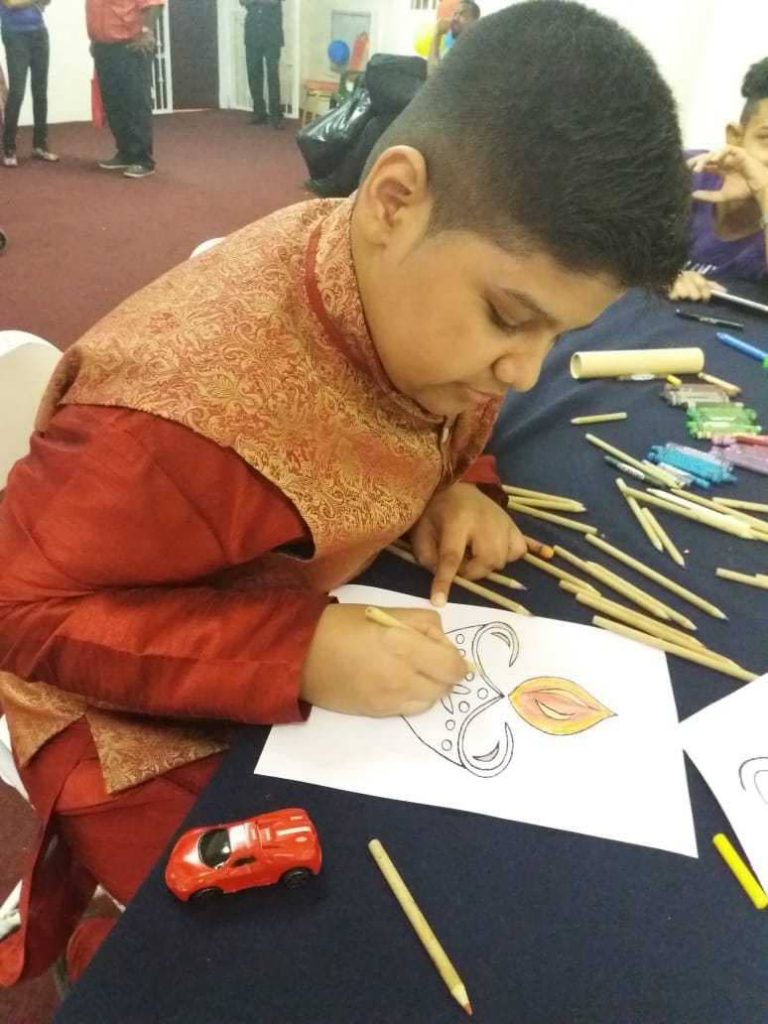Chasing visibility for those with autism

DR RADICA MAHASE
“MY child loves to go out but where will I take him? There aren’t many places he can go and just be himself. He is high-functioning and he doesn’t have a problem with crowds and noises but he doesn’t sit still, so when we go out he will want to run and play. We understand that and we leave him to just enjoy himself and we make sure that we are always with him. But people stare at us like we can’t control him.
"One person told us once that we should either lock him up at home or put him on a leash. My husband got very angry and after that we started staying home more with him. As much as he loves to go out and see new things, we don’t want to risk people telling us things and staring at him, so we just stay home where he is comfortable and can be himself.”
These were the words of one parent who visited Support Autism T&T’s Autism Outreach Booth at the Divali Nagar in Chaguanas last week.
Many other parents of children with autism and other special needs would sympathise with her and would understand what she has to deal with. Many would agree with her and say the same thing – they do not take their children out because of the lack of sensory-friendly spaces in TT. In some cases, parents just do not want their children to be subjected to stares and not-too-friendly comments, while in other cases they feel that society judges them and their children. Generally though, most parents would agree that if there were spaces which catered to their child’s needs then they would willingly take them out more.

Sadly, for the main part, children with autism and other special needs remain invisible in society. This is because TT is simply not understanding or accommodating of their special needs. Often, special needs can be interpreted as wheelchair-bound and once there is wheelchair access, organisations and events believe that they are special-needs friendly. Many do not know of, or understand invisible special needs such as autism.
In this country, most (if not all) public spaces and events tend to be crowded and noisy. The biggest celebrations such as Carnival and Divali can be a nightmare for those with special needs because of the crowds, noises, lights, inaccessibility, etc. Unfortunately, hosting sensory-friendly events is not something that people tend to think about and only those who are high-functioning might be able to attend these and enjoy themselves.
Consequently, individuals with autism and other special needs remain largely invisible. Often, it is the parents and caregivers who feel the pain as they wish for activities in which their children can participate in a comfortable manner. In recent times, we have seen some attempts at inclusion with events like Sensory Sensitive Sundays at Chuck e Cheeses and Sensory Friendly Movies at Caribbean Cinemas.
While these may be a start, these are simply not enough. Individuals with special needs shouldn’t be given one or two events to attend, some of which parents cannot afford. They need to be included in all levels of activities and this can only happen when society as a whole recognises that they exist and that they deserve a chance to participate in society like every other person. This will happen when being considerate of those with special needs is just a regular aspect of our everyday behaviour. We need to move beyond just organising a few events for them to making every major event a more accommodating one.
This year was the first time that children with autism visited out Autism Outreach Booth at Divali Nagar with their parents and caregivers, every single night. Generally, the Divali Nagar, like all other large cultural events, is not a place that is friendly towards those with special needs. Those who use wheelchairs can still manoeuvre their way around as there are parking spots and wheelchair ramps, but for those with "invisible disabilities" is it not very accommodating or sensory-friendly.
The parents who brought their children did so because they were aware of our presence at the nagar and they felt comfortable knowing that there are individuals there who would understand their children’s needs. Sometimes that is all it takes to make those with autism and other special needs more visible in our society.
Dr Radica Mahase is founder/director, Support Autism T&T


Comments
"Chasing visibility for those with autism"